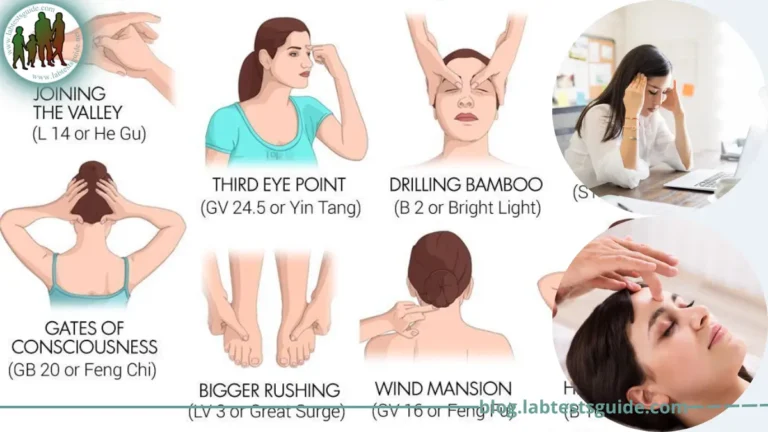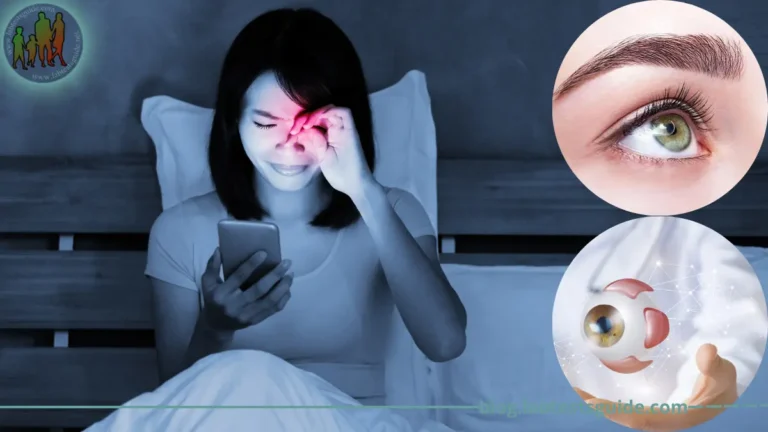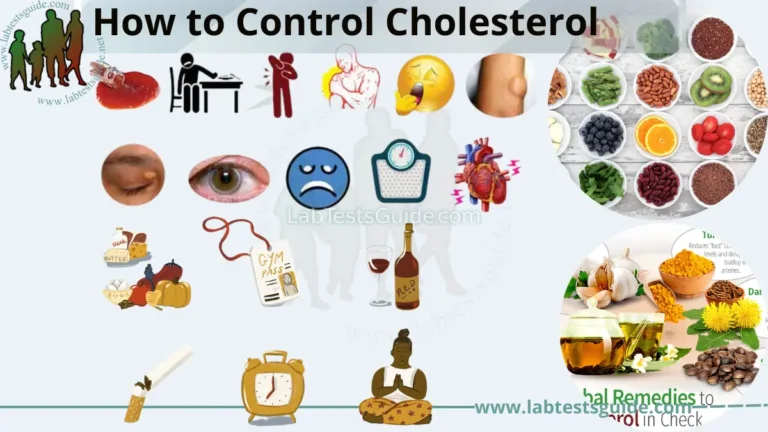Hormonal acne is a common skin condition that affects many individuals, typically during adolescence or hormonal fluctuations in adulthood. It occurs when hormone levels, specifically androgens, trigger excess oil production, leading to clogged pores and the development of acne. While hormonal acne can be frustrating and challenging to manage, there are various strategies and treatments available to help minimize breakouts and improve skin health.

This guide provides an overview of how to manage hormonal acne effectively. It explores lifestyle changes, medical treatments, natural remedies, professional guidance, and skincare routines that can be incorporated into your daily routine. Additionally, it offers tips for maintaining consistency, recognizing when to seek professional help, and emphasizes the importance of patience throughout the process.
Understanding Hormonal Acne:
What is Hormonal Acne?
Hormonal acne, as the name suggests, is a type of acne that is primarily influenced by hormonal changes in the body. It typically occurs when androgen hormones, such as testosterone, stimulate the sebaceous glands to produce excess sebum (oil). The excess oil, along with dead skin cells, can clog the pores, leading to the formation of comedones (clogged hair follicles), pimples, and inflammatory acne lesions.
- Causes of Hormonal Acne: The exact cause of hormonal acne is still not fully understood, but several factors contribute to its development.
- Hormonal Fluctuations: Hormonal acne is commonly associated with hormonal fluctuations during puberty, menstrual cycles, pregnancy, and menopause. Changes in hormone levels can stimulate the sebaceous glands and increase oil production.
- Androgen Hormones: Androgens, including testosterone, are hormones that both males and females produce. Increased androgen activity can lead to excessive sebum production, contributing to hormonal acne.
- Genetic Predisposition: A family history of acne can make individuals more prone to hormonal acne.
- Polycystic Ovary Syndrome (PCOS): PCOS is a hormonal disorder that can cause hormonal imbalances, including increased androgen levels, leading to hormonal acne.
Identifying Hormonal Acne:
Hormonal acne typically presents as deep, cystic pimples, especially along the jawline, chin, and lower cheeks. It often occurs in a cyclical pattern, coinciding with hormonal fluctuations. Other common signs of hormonal acne include.
- Painful and inflamed lesions
- Pimples that do not come to a head easily
- Breakouts before or during menstruation
- Increased acne during periods of stress or hormonal changes
- Persistence of acne into adulthood
What are Lifestyle Changes for Hormonal Acne Management:
Here are some important lifestyle changes to consider.
Healthy Diet and Hydration:
- Eat a balanced diet rich in fruits, vegetables, whole grains, and lean proteins.
- Limit the consumption of processed foods, sugary snacks, and drinks.
- Avoid foods that may trigger acne flare-ups, such as dairy products and high-glycemic foods.
- Stay hydrated by drinking an adequate amount of water throughout the day.
Regular Exercise:
- Engage in regular physical activity to help regulate hormone levels and reduce stress.
- Exercise improves blood circulation, which can contribute to healthier skin.
- Choose activities that you enjoy, such as jogging, yoga, or swimming.
Stress Management:
- Practice stress-reduction techniques like meditation, deep breathing exercises, or yoga.
- Get enough sleep to support hormonal balance and promote skin rejuvenation.
- Engage in activities that help you relax and unwind, such as reading, listening to music, or spending time in nature.
Proper Skincare Routine:
- Use gentle, non-comedogenic skincare products suitable for acne-prone skin.
- Cleanse your face twice a day with a mild cleanser to remove excess oil, dirt, and impurities.
- Avoid overwashing or scrubbing your face, as it can irritate the skin and worsen acne.
- Moisturize with an oil-free, non-comedogenic moisturizer to keep the skin hydrated without clogging pores.
Avoiding Triggering Factors:
- Identify and avoid any specific triggers that worsen your hormonal acne. This can include certain skincare products, makeup, or environmental factors.
- Be cautious with hair products that can come into contact with the face and potentially clog pores.
- Avoid touching or picking at your acne lesions, as it can introduce bacteria and lead to inflammation and scarring.
Remember, lifestyle changes alone may not be sufficient to manage severe or persistent hormonal acne. It’s advisable to consult with a dermatologist for a comprehensive treatment plan that may include medical interventions alongside these lifestyle modifications.
Medical Treatments for Hormonal Acne:
Here are some common medical treatments for hormonal acne.
Topical Medications:
- Retinoids: Prescription-strength retinoids, such as tretinoin, adapalene, or tazarotene, can help unclog pores, reduce inflammation, and promote skin cell turnover.
- Topical Antibiotics: Antibiotics, like clindamycin or erythromycin, can be used to control acne-causing bacteria and reduce inflammation.
- Azelaic Acid: This topical medication helps unclog pores and reduce inflammation. It is particularly useful for individuals with post-inflammatory hyperpigmentation.
Oral Medications:
- Oral Contraceptives: For females with hormonal acne, certain birth control pills that contain both estrogen and progestin can help regulate hormone levels and reduce acne. They are commonly prescribed in combination with other treatments.
- Anti-Androgen Medications: Medications like spironolactone can block the effects of androgens and reduce oil production. They are often used in women with hormonal acne.
- Oral Antibiotics: In cases of moderate to severe acne, oral antibiotics like doxycycline or minocycline may be prescribed to control bacteria and inflammation. These are typically used for a short period to avoid antibiotic resistance.
Hormonal Therapy:
- For individuals with hormonal imbalances, hormonal therapy may be recommended. This can include medications like anti-androgen drugs or medications that help regulate hormone levels, such as oral contraceptives or anti-androgenic medications.
Dermatological Procedures:
In certain cases, dermatological procedures may be recommended to manage hormonal acne. These can include.
- Chemical Peels: Chemical peels can help exfoliate the skin, reduce acne lesions, and improve overall skin texture.
- Laser or Light Therapies: These treatments target the bacteria responsible for acne and reduce inflammation. They can also help with acne scarring.
- Corticosteroid Injections: For severe and inflamed acne lesions, corticosteroid injections can help reduce inflammation and promote healing.
It’s important to note that medical treatments for hormonal acne should always be prescribed and supervised by a dermatologist or healthcare professional. They will consider your specific situation, medical history, and the severity of your acne to determine the most suitable treatment plan for you.
Natural Remedies and Home Treatments:
Here are a few options to consider.
Tea Tree Oil:
- Tea tree oil has antimicrobial and anti-inflammatory properties that can help reduce acne lesions.
- Dilute tea tree oil with a carrier oil (such as jojoba oil) and apply it to affected areas with a cotton swab.
- Avoid using undiluted tea tree oil directly on the skin as it may cause irritation.
Green Tea:
- Green tea contains antioxidants that help reduce inflammation and fight acne-causing bacteria.
- Brew green tea and let it cool. Use a cotton ball to apply the cooled tea to your face or use it as a toner after cleansing.
Zinc Supplements:
- Zinc is an essential mineral that can help regulate hormone levels and reduce acne inflammation.
- Consult with a healthcare professional before taking any supplements to determine the appropriate dosage for your needs.
Evening Primrose Oil:
- Evening primrose oil contains gamma-linolenic acid (GLA), which has anti-inflammatory properties.
- Take evening primrose oil supplements as directed by a healthcare professional to help balance hormones and reduce inflammation.
Probiotics:
- Probiotics promote gut health and can potentially improve hormonal balance and reduce acne.
- Include probiotic-rich foods in your diet, such as yogurt, kefir, sauerkraut, or consider taking a probiotic supplement.
It’s important to remember that natural remedies and home treatments may vary in effectiveness for different individuals. While some people may find relief with these remedies, others may require additional medical interventions. It’s always recommended to consult with a dermatologist or healthcare professional before incorporating natural remedies into your acne management routine, especially if you have any underlying health conditions or are using other medications.
Professional Guidance and Support:
Here are some avenues to consider.
Dermatologist Consultation:
- Schedule an appointment with a dermatologist who specializes in acne treatment.
- The dermatologist will evaluate your skin, assess the severity of your acne, and recommend appropriate medical treatments or procedures.
- They can provide prescription medications, monitor your progress, and make adjustments to your treatment plan as needed.
Esthetician Services:
- Estheticians can offer professional skincare treatments and advice for managing acne.
- They can perform treatments like facials, extractions, or chemical peels to help improve the appearance and health of your skin.
- Estheticians can also provide guidance on proper skincare routines, product recommendations, and homecare tips.
Support Groups and Online Communities:
- Joining support groups or online communities can provide emotional support and helpful tips from individuals who have experienced or are experiencing hormonal acne.
- Sharing experiences, learning from others, and discussing treatment options can be valuable in navigating your acne journey.
- However, remember that advice from non-professionals should be taken with caution, and it’s important to consult with healthcare professionals for medical advice.
Remember, professional guidance and support can play a significant role in managing hormonal acne, especially if your acne is severe, persistent, or impacting your quality of life. Dermatologists and skincare professionals have the expertise to develop a comprehensive treatment plan tailored to your specific needs and provide ongoing support throughout your acne management journey.
Lifestyle Tips for Managing Hormonal Acne:
Here are some essential lifestyle tips.
Cleanse Your Face Regularly:
- Cleanse your face twice a day using a gentle cleanser formulated for acne-prone skin.
- Avoid harsh scrubbing or overwashing, as it can irritate the skin and worsen acne.
- Choose non-comedogenic products that won’t clog your pores.
Avoid Touching Your Face:
- Avoid touching your face throughout the day to minimize the transfer of bacteria and oils.
- Keep your hands clean and refrain from picking or squeezing acne lesions, as it can worsen inflammation and lead to scarring.
Limit Makeup Usage:
- If you wear makeup, choose non-comedogenic and oil-free products.
- Remove makeup thoroughly before going to bed to allow your skin to breathe and regenerate.
Protect Your Skin from the Sun:
- Apply a broad-spectrum sunscreen with an SPF of 30 or higher every day, even on cloudy days.
- Sunscreen helps prevent sun damage and protects against post-inflammatory hyperpigmentation that can result from acne.
It’s important to note that lifestyle changes alone may not completely eliminate hormonal acne, especially for more severe cases. It’s advisable to combine these lifestyle tips with appropriate medical treatments and professional guidance for optimal results.
Developing a Skincare Routine for Hormonal Acne:
Here are key steps to consider when developing a skincare routine.
Cleansing:
- Cleanse your face twice a day, morning and evening, using a gentle cleanser suitable for acne-prone skin.
- Look for cleansers with ingredients like salicylic acid or benzoyl peroxide to help unclog pores and reduce acne-causing bacteria.
- Avoid scrubbing too harshly, as it can irritate the skin. Gently massage the cleanser onto your face using your fingertips and rinse thoroughly with lukewarm water.
Exfoliation:
- Exfoliate your skin 1-2 times a week to remove dead skin cells and unclog pores.
- Choose a chemical exfoliant with ingredients like alpha-hydroxy acids (AHAs) or beta-hydroxy acids (BHAs) to promote gentle exfoliation.
- Avoid over-exfoliating, as it can cause irritation. Follow the instructions on the product and listen to your skin’s needs.
Moisturizing:
- Use a lightweight, oil-free, and non-comedogenic moisturizer to hydrate your skin without clogging pores.
- Look for moisturizers with ingredients like hyaluronic acid, glycerin, or ceramides to help maintain skin moisture balance.
- Apply moisturizer after cleansing and exfoliating, both in the morning and evening.
Spot Treatment:
- Apply a targeted spot treatment to individual acne lesions or areas prone to breakouts.
- Look for spot treatments containing ingredients like benzoyl peroxide or salicylic acid, which can help reduce inflammation and kill acne-causing bacteria.
- Follow the instructions on the product and apply it directly to the affected areas.
Sun Protection:
- Apply a broad-spectrum sunscreen with an SPF of 30 or higher as the last step of your morning skincare routine.
- Sunscreen helps protect your skin from harmful UV rays and prevents post-inflammatory hyperpigmentation.
- Reapply sunscreen every two hours, especially if you’re exposed to direct sunlight for extended periods.
Remember to introduce new skincare products gradually and patch test them to ensure they do not cause any adverse reactions. It’s advisable to consult with a dermatologist to determine the most suitable products and ingredients for your specific skin type and concerns.
Maintaining Consistency and Patience:
Here are some important points to keep in mind.
Tracking Your Progress:
- Take photos of your skin at regular intervals to track changes and improvements over time.
- Keep a journal to note any modifications you make to your skincare routine or lifestyle, as well as any changes in your acne.
Being Patient with Results:
- Understand that hormonal acne treatment is a gradual process, and improvements may not happen overnight.
- It may take several weeks or even months to see significant changes in your acne.
- Avoid the temptation to switch treatments or routines too quickly, as this can disrupt progress and make it difficult to assess what is truly effective.
Adjusting Treatments as Needed:
- If you haven’t seen improvement after an appropriate amount of time, consult with a dermatologist.
- They can evaluate your progress and make adjustments to your treatment plan, considering factors such as the severity of your acne and your skin’s response to previous treatments.
- It’s important to communicate any concerns or questions you have to your healthcare professional.
Remember, everyone’s skin is unique, and what works for one person may not work for another. It may take some trial and error to find the most effective treatment and skincare routine for your hormonal acne. Stay committed, be patient, and rely on the guidance of dermatologists or healthcare professionals to help you navigate the process.
FAQs:
Can hormonal acne be cured?
Hormonal acne can be effectively managed and controlled, but it may not be completely cured for everyone. With the right treatment plan, lifestyle modifications, and skincare routine, most people can significantly reduce acne breakouts and improve the overall appearance of their skin.
How long does it take to see results from hormonal acne treatments?
The timeline for seeing results can vary from person to person. It may take several weeks or even a few months to see noticeable improvements in hormonal acne. Consistency in following your treatment plan and patience are key.
Can over-the-counter products alone treat hormonal acne?
Mild cases of hormonal acne may respond well to over-the-counter products containing ingredients like salicylic acid or benzoyl peroxide. However, for moderate to severe hormonal acne, it’s advisable to consult with a dermatologist who can prescribe appropriate medications or treatments.
Are there any dietary changes that can help manage hormonal acne?
While diet alone may not be the primary cause of hormonal acne, some individuals find that certain dietary modifications can help improve their skin. It’s recommended to maintain a balanced diet, stay hydrated, limit processed foods and sugary snacks, and avoid known trigger foods that may worsen acne for some individuals, such as dairy or high-glycemic foods. However, it’s important to note that dietary changes may not have the same impact for everyone.
Can stress worsen hormonal acne?
Stress can potentially worsen hormonal acne as it can disrupt hormone balance and increase inflammation in the body. Managing stress through relaxation techniques, exercise, and self-care practices may help in reducing acne breakouts.
Is it safe to use natural remedies for hormonal acne?
Natural remedies can be helpful in managing hormonal acne for some individuals. However, it’s important to remember that natural remedies may not work for everyone, and their effectiveness varies. It’s recommended to consult with a dermatologist or healthcare professional before incorporating natural remedies into your acne management routine, especially if you have any underlying health conditions or are using other medications.
Conclusion:
Managing hormonal acne can be a challenging journey, but with the right approach, it is possible to achieve clearer and healthier skin. By understanding the nature of hormonal acne, making lifestyle changes, seeking professional guidance, and developing a consistent skincare routine, you can effectively manage and minimize acne breakouts.
It’s important to remember that each individual’s experience with hormonal acne is unique, and what works for one person may not work for another. It’s advisable to consult with a dermatologist or healthcare professional who can provide personalized advice, recommend suitable treatments, and monitor your progress.
Stay patient, as results may take time to become noticeable. Consistency and adherence to your treatment plan are key factors in achieving long-term improvements. Track your progress, make adjustments as needed, and maintain open communication with your healthcare professional throughout the process.
Remember, managing hormonal acne is not just about treating the symptoms but also addressing the underlying hormonal imbalances and promoting overall skin health. With a comprehensive approach, support, and perseverance, you can successfully manage hormonal acne and boost your self-confidence.






